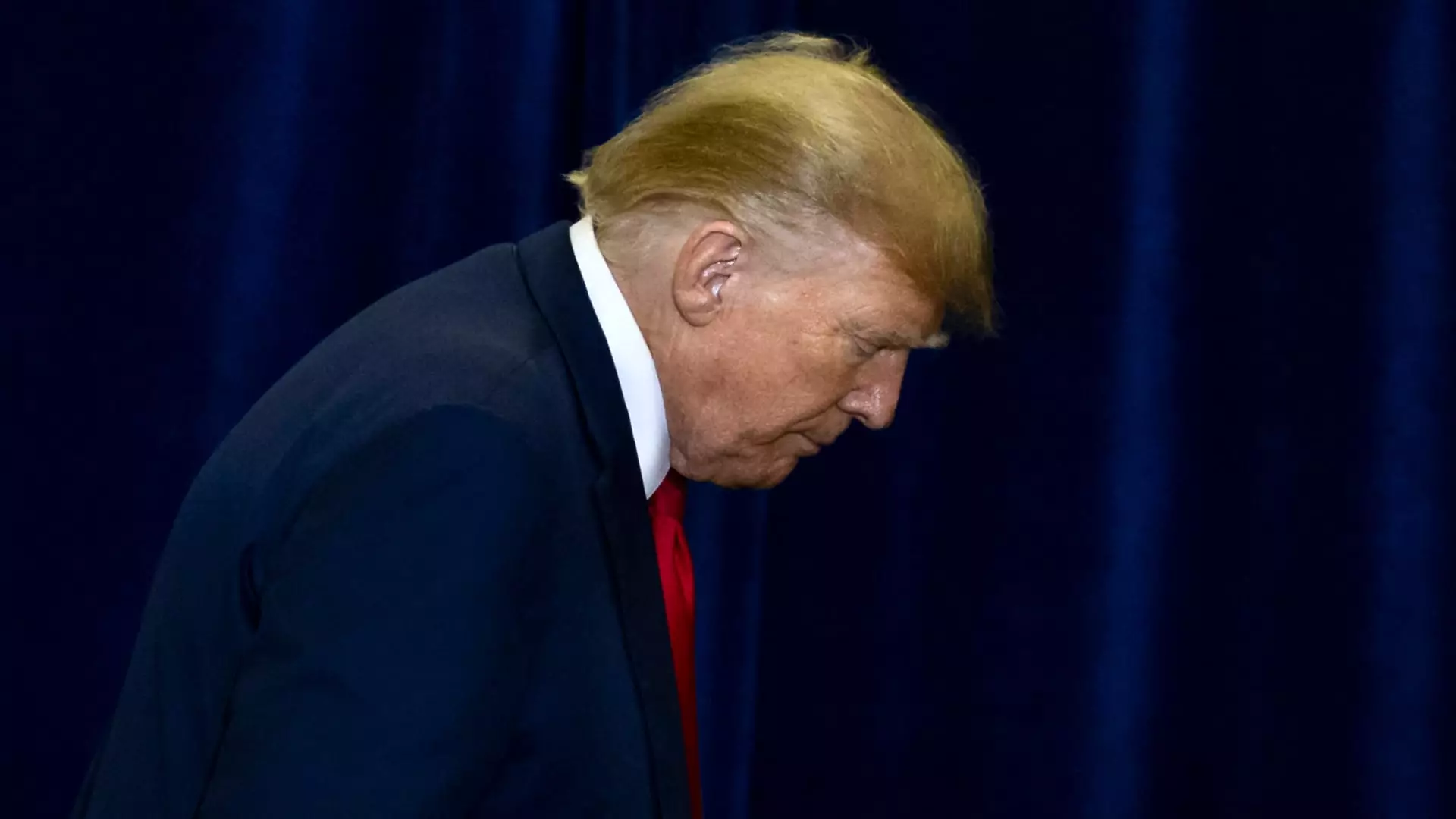In a recent turn of events, former President Donald Trump has been barred from making a closing argument at his New York civil fraud trial. Judge Arthur Engoron made this decision after Trump’s lawyer, Chris Kise, failed to agree to limitations on what Trump could say. This new development comes after a series of contentious emails between Judge Engoron and Kise over Trump’s unconventional plan to give part of the defense’s closing arguments in court. Ultimately, the judge set certain conditions on what Trump would be allowed to say, and Kise resisted these limitations. As a result, Trump has been prohibited from personally making a closing argument in Manhattan Supreme Court.
Judge Engoron was clear in outlining the limitations on Trump’s potential statement. The former president would only be allowed to speak about “material facts that are in evidence, and application of the relevant law to those facts.” This stipulation was meant to ensure that Trump’s argument aligned with the rules that lawyers are also bound by. Furthermore, the judge explicitly stated that Trump would not be permitted to deliver a campaign speech or personally attack anyone involved in the trial, including the judge himself or the Attorney General Letitia James, who filed the business fraud lawsuit that forms the basis of this trial.
Judge Engoron’s decision to deny Trump’s request for a postponement further added to the tension surrounding this trial. Trump had requested the delay due to the death of his mother-in-law, but Engoron rejected this plea. While expressing condolences, the judge stood firm and maintained that the trial would proceed as scheduled. This refusal to grant any further extensions demonstrated Engoron’s unwavering commitment to the proper administration of justice.
The disagreements between Kise and Judge Engoron revolved around the conditions imposed on Trump’s statement. Kise argued that the provided conditions were fraught with ambiguities and could lead to misinterpretation. However, the judge firmly asserted that the conditions were not up for further debate. This back-and-forth exchange highlighted the contentious nature of the trial and the differing perspectives on Trump’s role in the closing arguments.
Throughout this process, Attorney General Letitia James’ office expressed opposition to Trump making a personal statement. They argued that he was already represented by attorneys who could speak on his behalf and that his history of irrelevant speeches and failure to adhere to court orders made him prone to disrupting the proceedings. James’ office warned that allowing Trump to present a closing argument would invite further disruptions and disrupt the overall flow of the trial.
Closing arguments are a critical stage in any trial, serving as the final opportunity for the defense and prosecution to persuade the judge or jury about the merits of their case. It is during this time that attorneys summarize the evidence presented and make compelling arguments based on the law. Trump’s desire to personally make a closing statement speaks to his belief in his ability to influence the outcome of the trial. However, the judge’s decision to bar Trump reflects a commitment to a fair and controlled courtroom environment.
With Trump now prohibited from making a closing argument, the trial will proceed as planned, and the attorneys representing both sides will present their respective closing arguments. Attorney General Letitia James has requested a fine of $370 million and a lifetime ban on Trump working in New York’s real estate industry. Additionally, James seeks to prevent Trump from serving as an officer or director of a New York corporation. These penalties, if imposed, would have significant implications for Trump’s future endeavors in real estate and business.
The judge’s decision to bar Trump from making a personal statement in his civil fraud trial reflects the need for fair and controlled courtroom proceedings. Despite Trump’s desire to personally address the court, the judge imposed limitations on what Trump could say to ensure compliance with the rules governing closing arguments. This denial not only underscores the contentious nature of the trial but also highlights the significance of closing arguments in the overall outcome of a case. As the trial moves forward, the attorneys involved will present their closing arguments, and a final verdict will be reached.

Leave a Reply